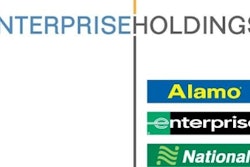Stamford, Conn.—Sept. 15, 2014—Over half (57 percent) of international businesses surveyed by Basware and MasterCard admit to having actively delayed paying their suppliers in the past 12 months. The findings underscore a late payment culture, which three out of four businesses now consider normal practice, that is hampering small and medium-sized enterprises (SMEs) in particular. In order to break this cycle, Basware and MasterCard are introducing Basware Pay, a solution that connects buyer and supplier payment processes, and enables working capital optimization. It allows buyers to better manage their cash flow and allows suppliers to get paid sooner.
“When three quarters of businesses have more than 50 suppliers, and about two thirds send and receive more than 100 invoices a month, a culture of late payments impacts individual organizations, as well as the economy as a whole,” said Esa Tihilä, chief executive officer, Basware. “While a certain level of cash hoarding may be understandable given the financial climate, it also reflects inefficient processes and poor practices. Businesses have a responsibility to themselves and their supply chain to unlock value and keep money moving.”
Building on their existing partnership, Basware and MasterCard combined their expertise and capabilities to launch Basware Pay, a new solution developed to optimize working capital. Basware Pay extends the value of the purchase-to-pay process by providing a unique, global e-payment solution. The solution connects buyers’ and suppliers’ payment processes through the Basware Commerce Network. Suppliers’ invoices are sent via the Basware Commerce Network, approved by the buyer, and once approved, become available for payment through a virtual MasterCard account number. The supplier receives an early payment while the buyer typically extends payment terms. Both parties benefit from richer settlement data, and full process and payment visibility—leading to less chasing or being chased for payment.
“More than ever, global businesses rely on a complex network of partners and suppliers, and the ability to interact with agility is key to taking advantage of a fast-moving environment,” said Hany Fam, president, MasterCard Enterprise Partnerships. “Integrating invoicing and payments processes can take friction out of the system and boost the broader economy. Combining MasterCard’s global network and innovative technology with Basware’s purchase-to-pay platform has the potential to enable transformative change.”
Over 1,000 strategic decision-makers across the U.S., Europe and Australia participated in the Creating Payment Energy research. The results highlight the tension between cash management and efficient payment processes. Here are some of the top findings:
- While the vast majority (88 percent) of respondents agree that suppliers should be paid promptly, over half (57 percent) admitted to having actively delayed payments in the past 12 months.
- Three quarters (74 percent) of decision-makers think late payment is a fact of business life and will always happen, despite 90 percent acknowledging that payment delays have wider repercussions for businesses, such as the ability to pay staff or reduce investment.
- Two thirds (67 percent) acknowledged that they used payment terms as a strategic lever to help manage cash flow.
- Only one in four businesses has highly automated processes to manage payment efficiently.











